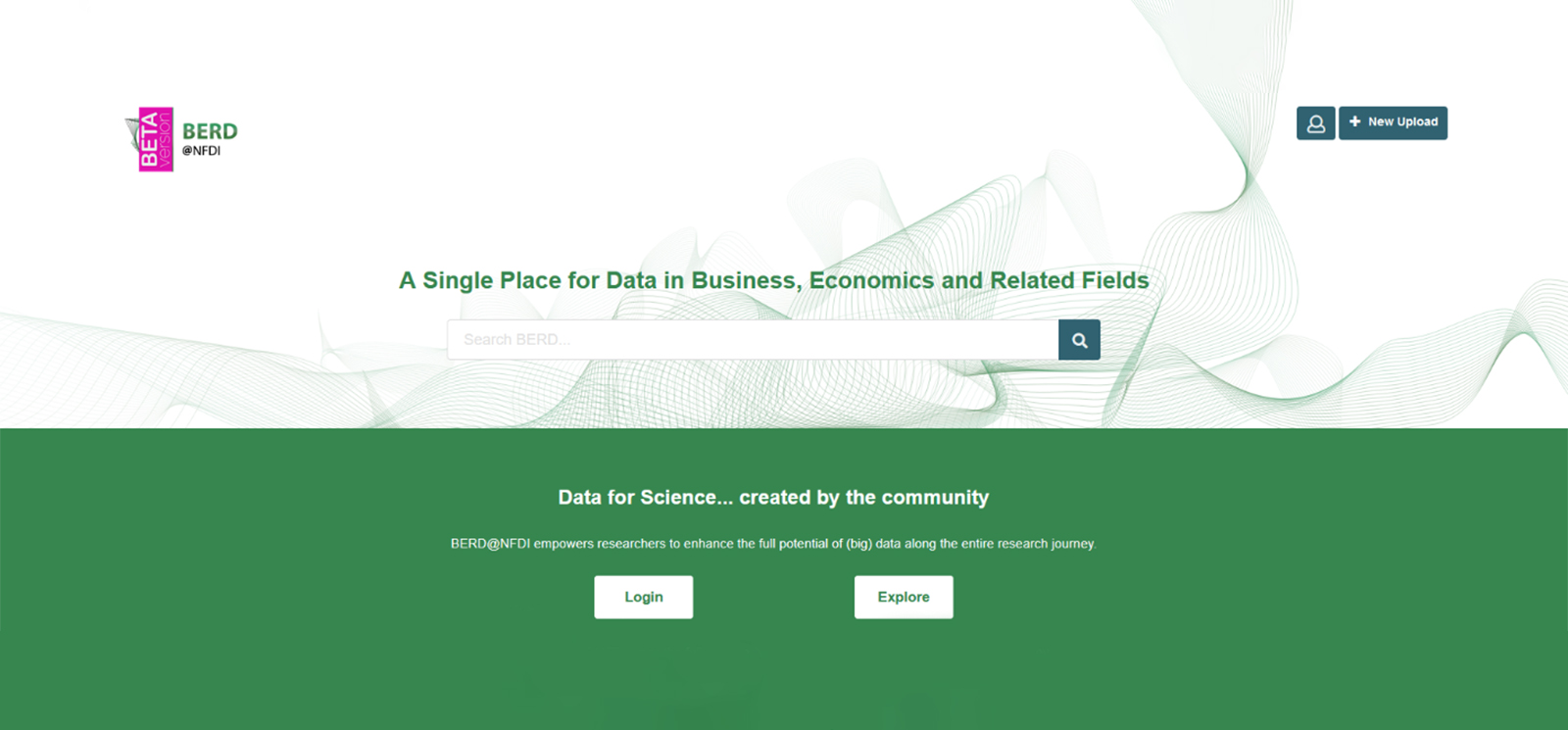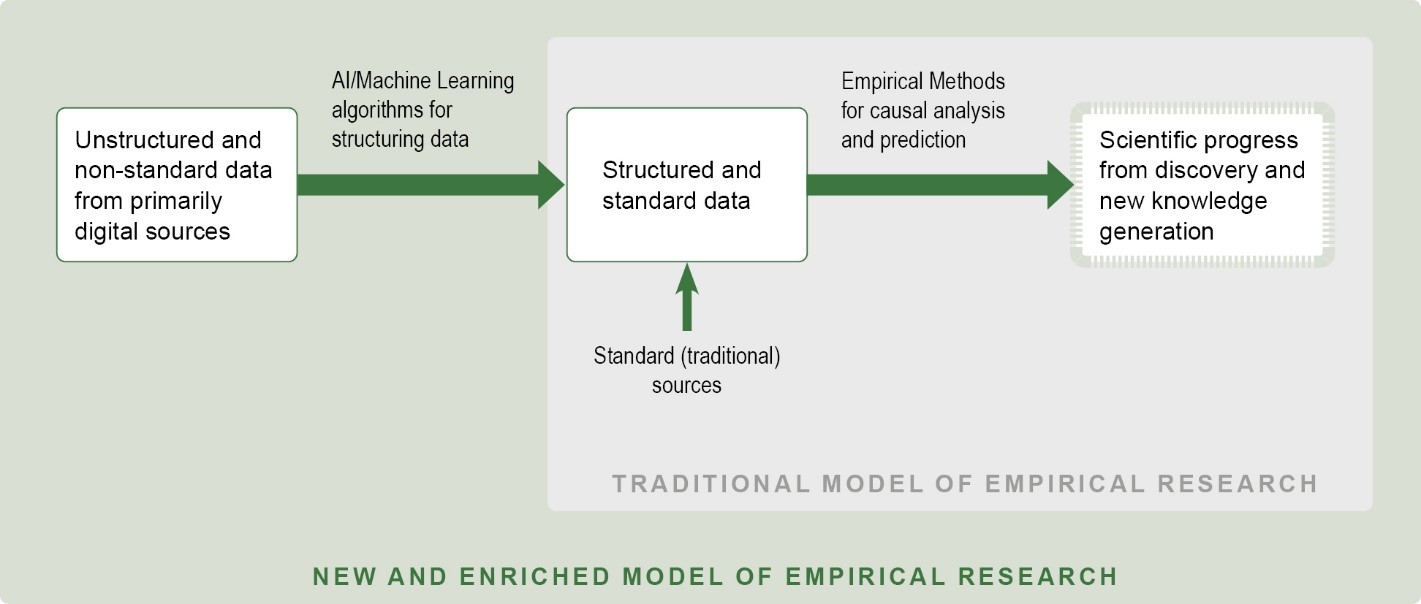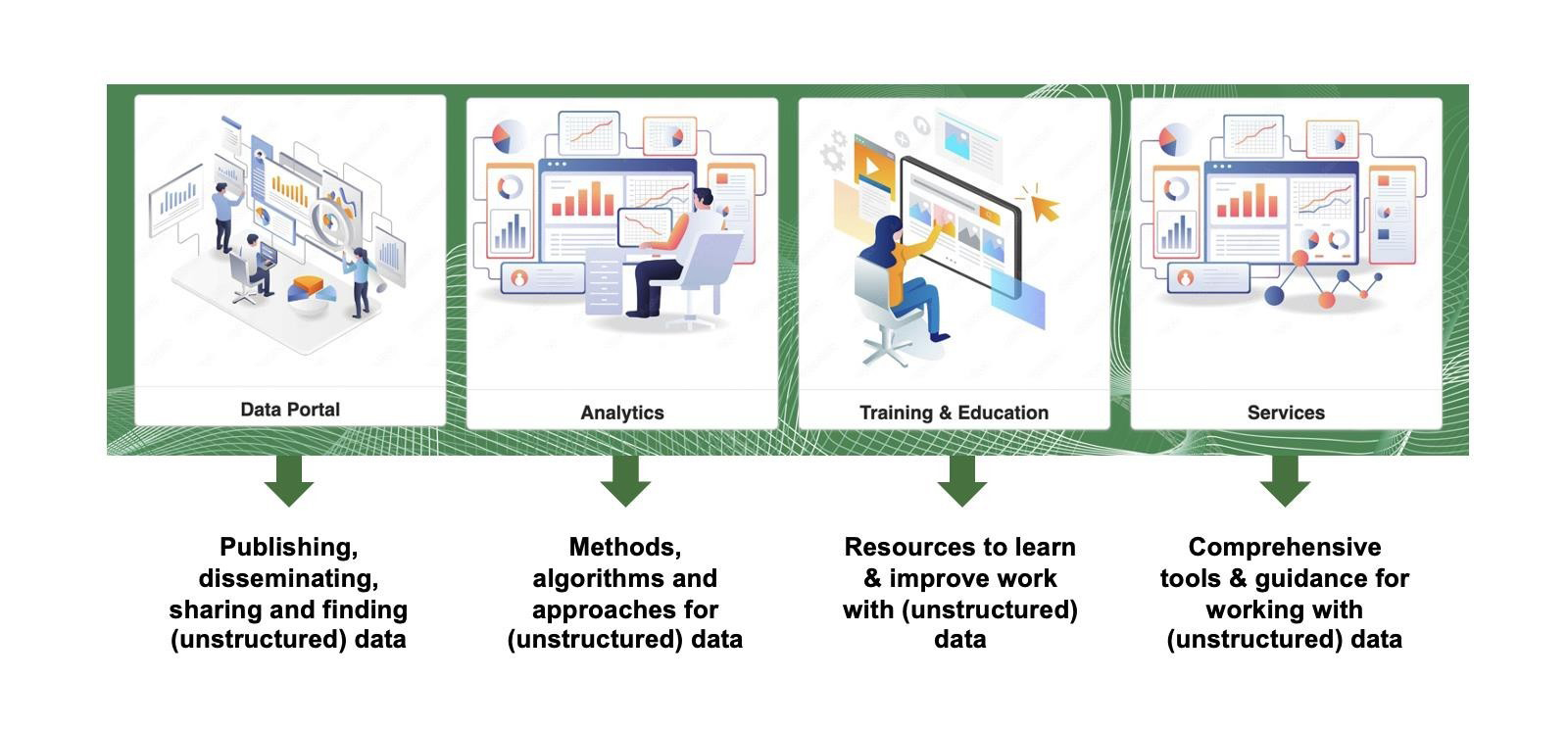How the BERD@NFDI platform promotes Open Science
BERD@NFDI and the unstructured data age

The research fields of business, economics and other social sciences are dedicated to the relationships between individuals and organisations within a society. Social science disciplines have long used empirical methods to understand these complex systems. Recently, however, unstructured and non-standardised data has become increasingly important. These new types of data, such as image, video, audio or text data, either have no previously defined data model or are not organised in a predefined way.
By 2025, 80 per cent of the data processed in commercial applications is expected to be in unstructured form. A notable example of this is music streaming services, which generate an enormous amount of data. This data is used to understand users’ preferences for music by collecting information about who listens to what music, how often, at what time of day, what music is shared, what listeners discuss about it, what images they share and what similarities they have with other music listeners.
Traditional empirical research models were mainly based on structured data from standard sources that could be used directly for analysis purposes. In contrast, unstructured and non-standardised data are usually not directly suitable for empirical models. This requires a new and extended empirical research model that takes into account the analysis of unstructured data and enables exciting discoveries and social gains. This is where BERD@NFDI comes in.

New enriched data model for empirical research in the social sciences, graphic: BERD
BBERD@NFDI is a platform that focuses on collecting, processing, analysing and storing data from the economy and related areas, with a particular focus on unstructured (big) data, such as video, image, audio, text or smartphone data. One of the main focal points is the promotion of FAIR research data management. As part of the National Research Data Infrastructure (NFDI), BERD aims to collect data sets and make them reusable for various disciplines in the German science system.
The development of BERD began in autumn 2021 with the following partners ZBW – Leibniz Information Centre for Economics (infrastructure partner), University of Mannheim (coordinator) and GESIS – Leibniz Institute for the Social Sciences, Institute for Employment Research, Ludwig-Maximilians-Universität München, University of Hamburg and University of Cologne.
Since 2021, an online platform has been created to facilitate access to all BERD services and ensure easy accessibility. The platform is currently still in the beta phase and has been publicly accessible since March 2024.
Four important portals will serve as central access points to the BERD services: the data portal, the analysis portal, the training and education portal and the service portal.

Four key portals act as central access points to BERD@NFDI services, graphic: BERD
Read here what makes the four portals special.
